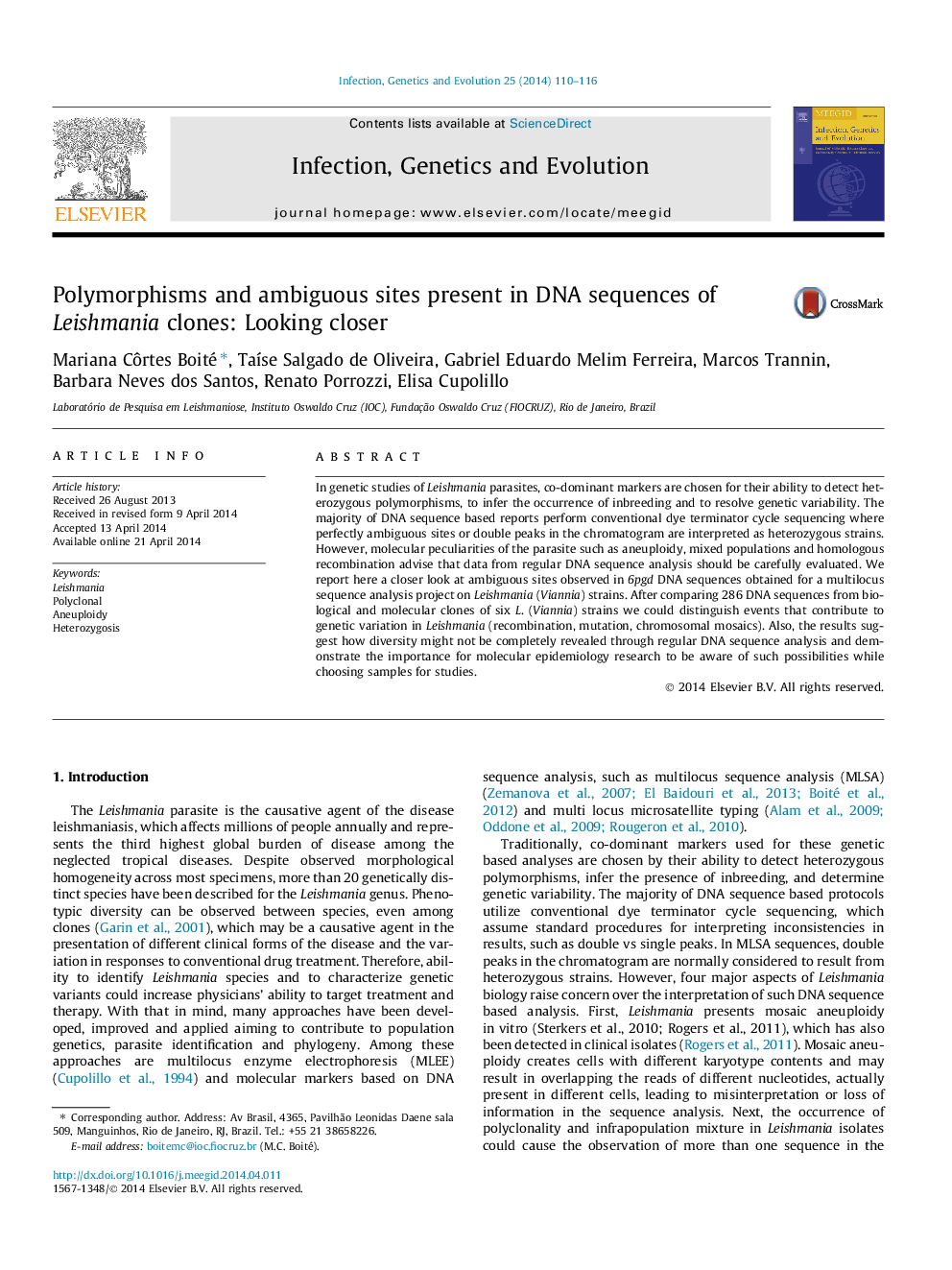| کد مقاله | کد نشریه | سال انتشار | مقاله انگلیسی | نسخه تمام متن |
|---|---|---|---|---|
| 5909285 | 1570178 | 2014 | 7 صفحه PDF | دانلود رایگان |

- Loss of ambiguous site might be due to asymmetric chromosomal allotments (ACA).
- Less frequent alleles can only be detected after molecular cloning in conventional sequencing methods.
- Monoclonal heterozygous strain profiling in DNA sequences cannot exclude karyotype diversity.
- To exclude multiple peaks samples is not the best way to deal with the occurrence of infra-populations.
- Underestimated diversity bias could be diminished by proper sampling of strains.
In genetic studies of Leishmania parasites, co-dominant markers are chosen for their ability to detect heterozygous polymorphisms, to infer the occurrence of inbreeding and to resolve genetic variability. The majority of DNA sequence based reports perform conventional dye terminator cycle sequencing where perfectly ambiguous sites or double peaks in the chromatogram are interpreted as heterozygous strains. However, molecular peculiarities of the parasite such as aneuploidy, mixed populations and homologous recombination advise that data from regular DNA sequence analysis should be carefully evaluated. We report here a closer look at ambiguous sites observed in 6pgd DNA sequences obtained for a multilocus sequence analysis project on Leishmania (Viannia) strains. After comparing 286 DNA sequences from biological and molecular clones of six L. (Viannia) strains we could distinguish events that contribute to genetic variation in Leishmania (recombination, mutation, chromosomal mosaics). Also, the results suggest how diversity might not be completely revealed through regular DNA sequence analysis and demonstrate the importance for molecular epidemiology research to be aware of such possibilities while choosing samples for studies.
Journal: Infection, Genetics and Evolution - Volume 25, July 2014, Pages 110-116